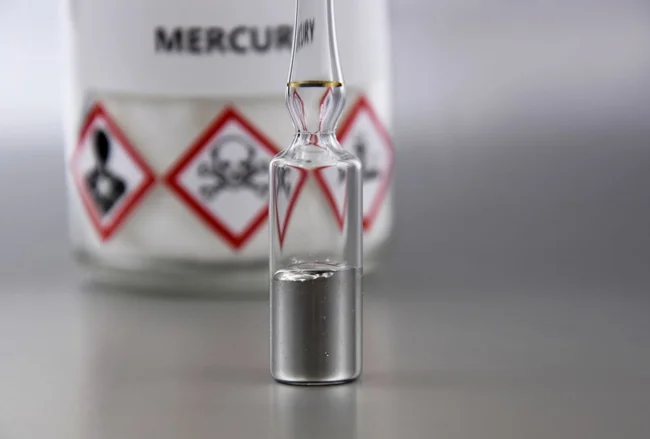The tragic death of a chemistry professor from a tiny drop (4 photos)
Karen Wetterhahn was a research chemist at Dartmouth College in New Hampshire, USA, studying the effects of toxic metals on living organisms. In August 1996, Karen was conducting an experiment with dimethylmercury when a small drop landed on her latex glove. 
The chemistry professor took all the necessary precautions: she cleaned up and changed her gloves. But, unfortunately, the toxic liquid had already penetrated her skin and blood.
It took several months for Karen to experience symptoms. She began to have problems with her balance, speech, vision and hearing. She was hospitalized the following January. 
Tests showed that Wetterhahn was suffering from severe mercury poisoning. The level of the dangerous metal in her body was 4,000 times higher than normal.
Dr. Ben Miles explains: "Just one drop of this liquid can change your life forever. It's not quick, but it's irreversible. All doctors can do is watch as your brain slowly deteriorates."
"This is the terrifying reality of dimethylmercury... Once in the body, it breaks down into mercury ions. They attract sulfur atoms, which are found in large quantities in neurons of the brain and central nervous system. Due to a lack of sulfur, neurons stop functioning normally and die." 
Despite chelation therapy, 48-year-old Karen could not be saved. She could not walk, see, speak or hear, fell into a coma and was disconnected from life support just 10 months after the lab incident. The cause of death was encephalopathy caused by mercury intoxication. 
In 1998, experiments confirmed that dimethylmercury penetrates latex, PVC, and neoprene gloves almost instantly. Safety recommendations were revised.
Several memorials have been erected in her memory, and the National Institute of Ecology has established an award in honor of Karen Wetterhahn.
























